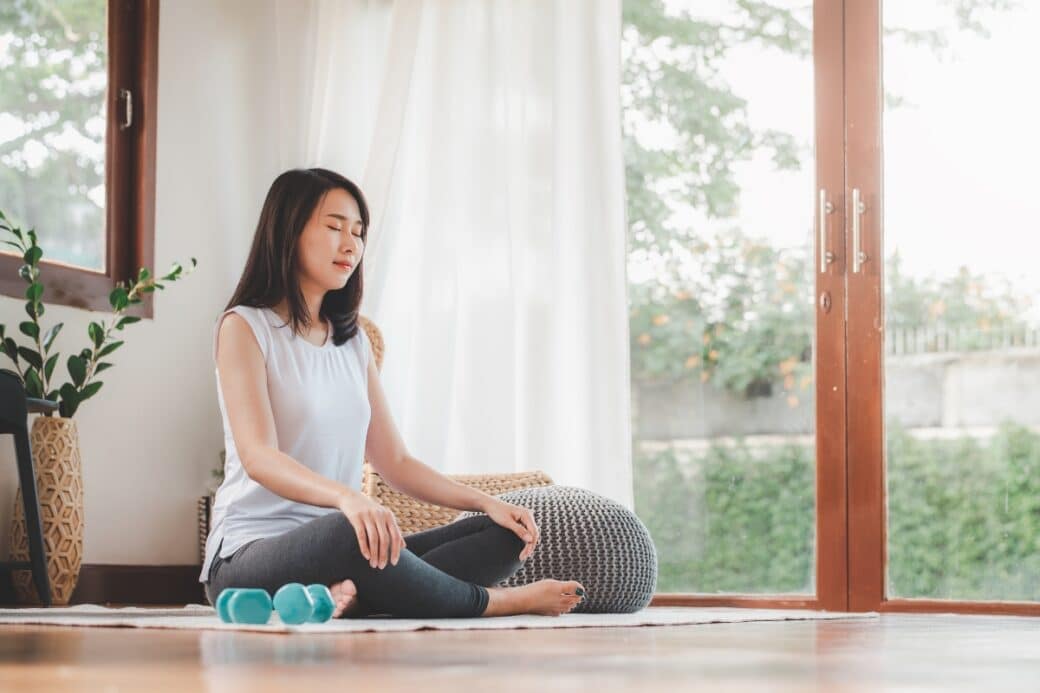If you find yourself tossing and turning at night, desperately seeking a good night’s sleep, then it’s time to consider the power of deep sleep hypnosis for insomnia. With countless individuals struggling to find restful nights, this article explores how this alternative therapy can help you overcome sleepless nights and achieve the rest you so desperately need. Discover the secrets behind deep sleep hypnosis and how it can guide your mind and body into a state of complete relaxation, allowing you to drift into a deep, rejuvenating slumber. Say goodbye to endless nights of insomnia and hello to the peaceful and restful sleep you deserve.
Understanding Insomnia
Insomnia is a common sleep disorder that affects millions of people worldwide. If you find yourself struggling to fall asleep or stay asleep through the night, you may be experiencing symptoms of insomnia. It’s important to recognize these symptoms so that you can seek appropriate help and take steps towards improving your sleep quality.
Recognizing the symptoms
The symptoms of insomnia can vary from person to person, but some common signs to look out for include difficulty falling asleep, waking up frequently during the night, difficulty getting back to sleep after waking up, and feeling tired or unrested upon waking in the morning. Other symptoms may include daytime fatigue, irritability, difficulty concentrating, and mood disturbances. If you consistently experience these symptoms for at least three nights a week for a period of three months or longer, it’s likely that you’re dealing with insomnia.
Why are you not sleeping?
There can be various factors contributing to your inability to sleep. Stress and anxiety are often culprits, as racing thoughts and worries can keep your mind awake at night. Additionally, certain lifestyle habits like consuming caffeine or using electronic devices right before bed can interfere with your ability to sleep. Insomnia can also be a symptom of an underlying medical or mental health condition. Understanding the root cause of your insomnia will be crucial in finding effective solutions.
Causes of insomnia
Insomnia can be categorized into two types: primary insomnia and secondary insomnia. Primary insomnia refers to sleep problems that are not directly caused by another health condition or medication. This type of insomnia is often related to stress, anxiety, or poor sleep habits. On the other hand, secondary insomnia is caused by an underlying health problem, such as chronic pain, sleep apnea, or depression. Certain medications or substances, such as stimulants or alcohol, can also contribute to secondary insomnia.
The Importance of Deep Sleep
Deep sleep, also known as slow-wave sleep or stage 3 NREM sleep, is a crucial stage of the sleep cycle. It plays a vital role in restoring and rejuvenating both the body and mind. Understanding the functions of deep sleep and the effects of its deprivation will help you appreciate its significance for a good night’s sleep.
Functions of deep sleep
During deep sleep, your body undergoes essential processes that promote physical recovery. It is the time when tissue repair and growth occur, and your immune system is boosted. Deep sleep also plays a role in memory consolidation, helping you retain information and improve cognitive function. Furthermore, this stage of sleep helps regulate hormones, balance your mood, and promote overall well-being.
Effects of lack of deep sleep
When you don’t get enough deep sleep, you may experience a wide range of negative effects. Your immune system may become compromised, increasing your vulnerability to illnesses. Lack of deep sleep can also impair cognitive function, resulting in difficulties with memory, attention, and problem-solving. Mood swings, irritability, and an overall decrease in emotional well-being are common consequences of deep sleep deprivation.
How much deep sleep is enough?
While individual sleep needs can vary, it is generally recommended that adults aim for 1.5 to 2 hours of deep sleep per night. Achieving this target can be challenging for individuals with insomnia. However, deep sleep hypnosis can be a promising technique to help you experience the restorative benefits of sufficient deep sleep.

The Science of Hypnosis
Hypnosis is often misunderstood and surrounded by misconceptions. However, it is a legitimate therapeutic technique that has been used for centuries to help individuals make positive changes and improve their well-being. Understanding what hypnosis is and how it works can help demystify this powerful tool.
Understanding what is hypnosis
Hypnosis is a state of heightened focus and concentration that allows individuals to access their subconscious mind more easily. It is a natural state of consciousness that we all experience to some degree in our daily lives. Have you ever found yourself engrossed in a captivating book or daydreaming? That’s a form of self-induced hypnosis.
How does hypnosis work?
The hypnotic process generally involves inducing a relaxed state and guiding the individual through suggestions and imagery to promote positive changes. During hypnosis, the conscious critical mind becomes less active, allowing the subconscious mind to be more receptive to suggestions. This can help reframe negative thoughts, overcome limiting beliefs, and promote relaxation, ultimately leading to improved sleep quality.
Common misconceptions about hypnosis
There are several misconceptions about hypnosis that prevent people from exploring its potential benefits. One common misconception is that hypnosis involves giving up control or being manipulated. In reality, hypnosis is a collaborative process where the individual actively participates and has the power to reject any suggestion that goes against their values or beliefs. Hypnosis also does not involve magic or mind control but rather works with the power of the individual’s own mind.
Deep Sleep Hypnosis for Insomnia
Deep sleep hypnosis combines the benefits of deep sleep and hypnosis to help individuals struggling with insomnia. By harnessing the power of suggestion and deep relaxation techniques, deep sleep hypnosis aims to induce a state of deep sleep, allowing you to experience the restful nights you’ve been longing for.
What is deep sleep hypnosis?
Deep sleep hypnosis is a guided hypnosis session specifically designed to promote deep and restful sleep. Through the use of soothing language, calming imagery, and relaxation techniques, a certified hypnotherapist can guide you into a state of deep relaxation and help you access the deeper stages of sleep. This can be done in a one-on-one session with a professional or through pre-recorded audio programs.
How does deep sleep hypnosis help with insomnia?
Deep sleep hypnosis addresses the underlying causes of insomnia by promoting relaxation, reducing stress, and rewiring negative thought patterns that may be contributing to sleep difficulties. By guiding your mind into a state of deep relaxation, deep sleep hypnosis can help you overcome racing thoughts, release tension, and create a conducive environment for falling asleep and staying asleep throughout the night.
The process of deep sleep hypnosis
Deep sleep hypnosis usually begins with a relaxation induction, where you are guided to relax your mind and body. The hypnotist will then use soothing language and imagery to create a safe and peaceful mental environment. Suggestions for deep sleep, stress reduction, and improved sleep quality will be given during this stage. The session typically ends with a gentle awakening, leaving you feeling refreshed and rejuvenated.
Scientific Research on Deep Sleep Hypnosis
It’s natural to wonder about the scientific evidence backing up the claims of deep sleep hypnosis. Numerous studies have explored the effectiveness of hypnosis for sleep, providing promising results and shedding light on its potential as a treatment for insomnia.
Presenting the evidence
Scientific studies have shown that hypnosis can significantly improve sleep quality, reduce sleep onset latency (the time it takes to fall asleep), and increase sleep duration. Research has also demonstrated that electroencephalography (EEG) readings during hypnosis sessions resemble those of deep sleep. These findings suggest that deep sleep hypnosis is a powerful tool for promoting the restful sleep needed for optimal health and well-being.
Effectiveness of deep sleep hypnosis for insomnia
Studies focusing specifically on deep sleep hypnosis have found it to be an effective intervention for individuals with insomnia. Not only does it help improve sleep quality, but it also decreases sleep disturbances and increases overall sleep satisfaction. The combination of hypnosis and deep sleep induction techniques proves to be a valuable approach in addressing the root causes of insomnia.
Opinions and reviews from professionals
Many sleep specialists and healthcare professionals recognize the potential of deep sleep hypnosis as a complementary therapy for insomnia. They acknowledge the scientific evidence supporting its efficacy and emphasize the importance of choosing a qualified and certified hypnotherapist when seeking this type of intervention. Professional feedback and testimonials further affirm the positive impact deep sleep hypnosis can have on sleep quality and overall well-being.
Self-hypnosis vs. Professional Hypnosis
When considering deep sleep hypnosis for insomnia, you may wonder whether to opt for self-hypnosis techniques or seek the assistance of a professional hypnotherapist. Both methods have their advantages and disadvantages, and choosing the right approach will depend on your individual preferences and needs.
What is self-hypnosis?
Self-hypnosis involves using techniques and scripts to induce a hypnotic state on your own. It allows you to have complete control over your hypnosis sessions and can be a convenient and cost-effective option. However, it requires self-discipline and practice to master the techniques effectively.
What is professional hypnosis?
Professional hypnosis involves seeking the services of a certified hypnotherapist or hypnotist who can guide you through the process. A professional can provide personalized guidance, tailor the hypnosis session to your specific needs, and ensure the techniques are performed correctly. This option may require more time and financial investment, but it offers the expertise and support of a trained professional.
Advantages and disadvantages of both methods
Self-hypnosis allows for flexibility and convenience, as you can practice it at any time and in the comfort of your own home. On the other hand, professional hypnosis provides the benefit of the therapist’s experience and expertise, ensuring a more tailored approach to your specific sleep issues. It’s important to consider your personal preferences, level of commitment, and the severity of your insomnia when deciding which method to pursue.
Preparation for Deep Sleep Hypnosis
Before embarking on a deep sleep hypnosis session, it’s helpful to know what to expect and how to prepare yourself mentally and physically. These preparations can contribute to a more successful hypnosis experience and enhance the effectiveness of the session.
What should you expect?
During a deep sleep hypnosis session, you can expect to feel deeply relaxed and at ease. It’s important to approach the session with an open mind and a willingness to engage in the process. While the experience can vary from person to person, many individuals report feeling a sense of calmness and tranquility during and after the session.
How to mentally prepare for the session
To mentally prepare for a deep sleep hypnosis session, it’s beneficial to create a quiet and comfortable environment free from distractions. Clear your mind of any negative thoughts or worries and set a positive intention for the session. Focus on your desire for restful sleep and trust in the process and the expertise of the hypnotherapist or the effectiveness of the self-hypnosis technique you have chosen.
Physical preparations
Physically preparing for a deep sleep hypnosis session involves creating a comfortable sleep environment. Ensure that your bedroom is cool, dark, and quiet, as these conditions promote optimal sleep. Avoid consuming stimulants such as caffeine or nicotine before the session, as they can interfere with the relaxation process. A relaxing pre-bedtime routine, such as taking a warm bath or engaging in a calming activity, can also set the stage for a successful deep sleep hypnosis experience.
Safety Measures and Considerations
When it comes to any therapeutic technique, safety should always be a top priority. It’s essential to understand the safety measures and considerations surrounding deep sleep hypnosis to ensure a positive and risk-free experience.
The safety of deep sleep hypnosis
Deep sleep hypnosis, when practiced correctly and guided by a qualified professional or through reputable self-hypnosis programs, is generally considered safe. Hypnosis itself is a natural state that individuals enter into regularly, so there is no inherent danger in the process. However, it is important to exercise caution and only engage in hypnosis practices with trusted and certified individuals or programs.
Potential side effects
In general, hypnosis is a safe practice with minimal side effects. Some individuals may experience temporary light-headedness or drowsiness during or after a hypnosis session. Emotionally sensitive individuals may also experience heightened emotions during the process. However, these effects are typically mild and transient, with no long-lasting negative effects reported.
Who should not use hypnosis?
While hypnosis is generally safe, there are certain groups of individuals who should exercise caution or avoid hypnosis altogether. People with a history of epilepsy or seizures, as well as those with certain psychiatric conditions like schizophrenia, should consult with their healthcare provider before engaging in hypnosis. Pregnant women should also consult their healthcare provider to ensure that deep sleep hypnosis is safe for them and their unborn child.
Success Stories and Testimonials
To gain a better understanding of the potential benefits of deep sleep hypnosis, it can be helpful to explore success stories and testimonials from individuals who have tried the technique. These firsthand accounts shed light on how deep sleep hypnosis has positively impacted their sleep and overall well-being.
How has deep sleep hypnosis helped others?
Many individuals have reported significant improvements in their sleep quality and insomnia symptoms after incorporating deep sleep hypnosis into their routine. They have found relief from racing thoughts, reduced anxiety levels, and a greater ability to fall asleep and stay asleep throughout the night. Deep sleep hypnosis has helped individuals feel more rested, refreshed, and energized upon waking, leading to improved productivity and overall quality of life.
In-depth interviews
In-depth interviews with individuals who have experienced the benefits of deep sleep hypnosis can provide valuable insights into their journey and the specific techniques or approaches that have worked for them. These personal accounts offer a relatable perspective and can inspire others who are struggling with insomnia to explore deep sleep hypnosis as a potential solution.
Analyzing success rates
Analyzing success rates involves looking at scientific studies and data that measure the efficacy of deep sleep hypnosis for insomnia. Clinical trials and research conducted on a large scale provide valuable information on the success rates of deep sleep hypnosis interventions, helping to build a strong case for its effectiveness.
Professional Resources
When seeking deep sleep hypnosis for insomnia, it’s important to have access to reliable resources and certified professionals who can guide you through the process. Knowing where to find certified hypnotists and reputable deep sleep hypnosis audios or applications is essential for a safe and effective experience.
Where to find a certified hypnotist
To find a certified hypnotist, you can start by researching reputable hypnotherapy associations or organizations that maintain directories of certified professionals. These resources can help you locate a qualified hypnotist in your area who specializes in sleep disorders and deep sleep hypnosis. Recommendations from trusted healthcare professionals or individuals who have had positive experiences with a particular hypnotist can also be valuable.
Reliable deep sleep hypnosis audios and applications
When seeking deep sleep hypnosis audios or applications, it’s important to consider the source and ensure they are created by reputable professionals. Look for audios or applications that are specifically designed for deep sleep induction and have received positive reviews from users. Reading user testimonials and checking for endorsements from sleep experts or healthcare professionals can provide additional confidence in the reliability and effectiveness of the resources.
What to look for in a hypnotist or hypnosis program
When selecting a hypnotist or hypnosis program, it’s important to consider their qualifications and experience in treating insomnia and utilizing deep sleep hypnosis techniques. Look for certifications from reputable hypnotherapy organizations and inquire about their specific training and expertise in sleep-related issues. Additionally, it’s helpful to choose a hypnotist or program that offers ongoing support, clear communication, and a personalized approach tailored to your needs and goals.




